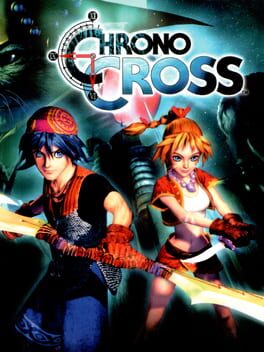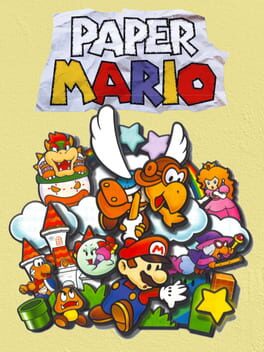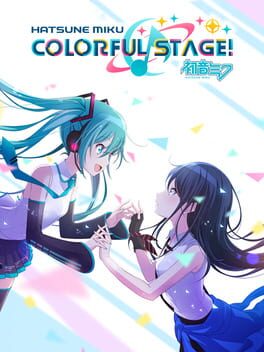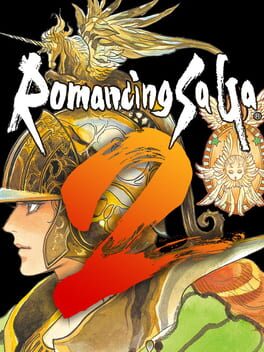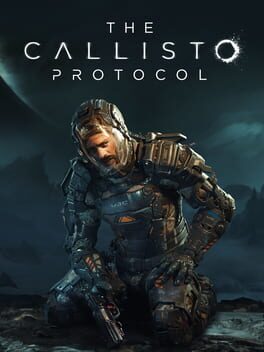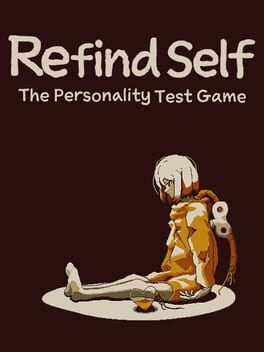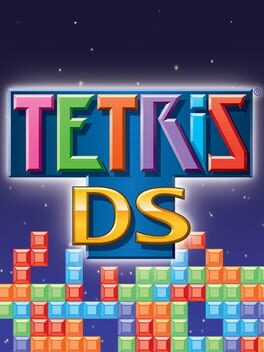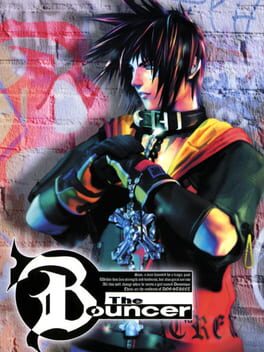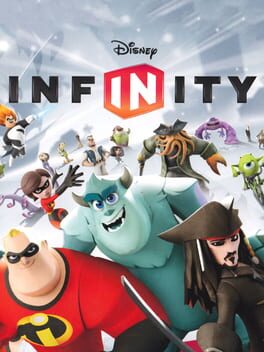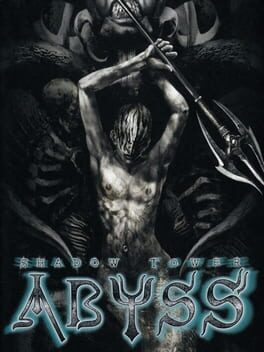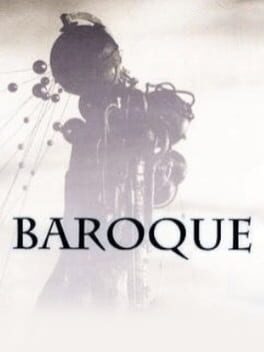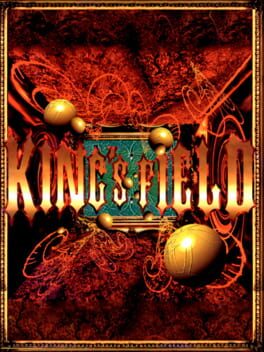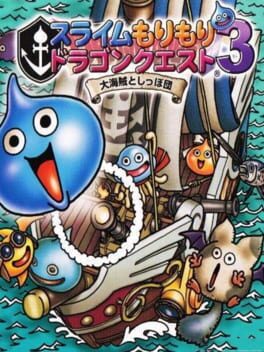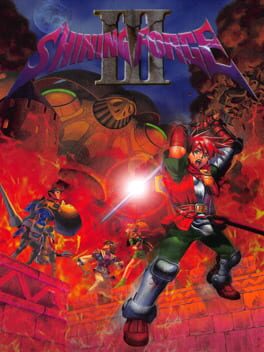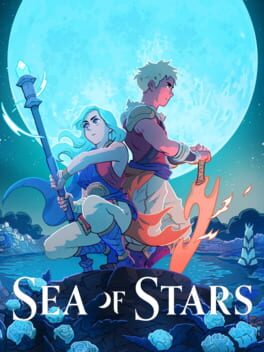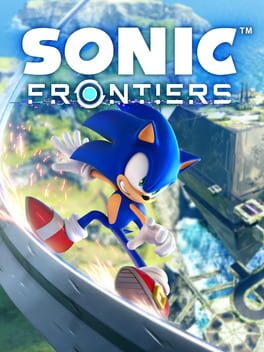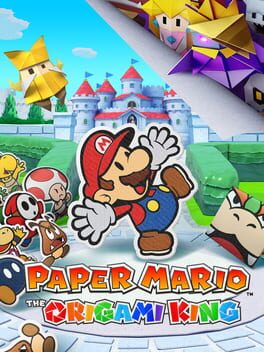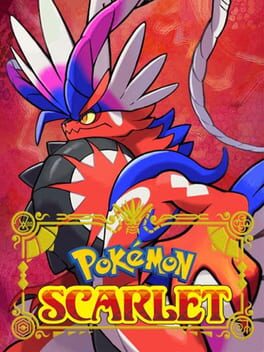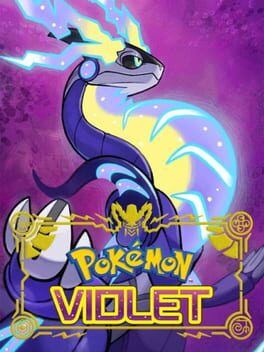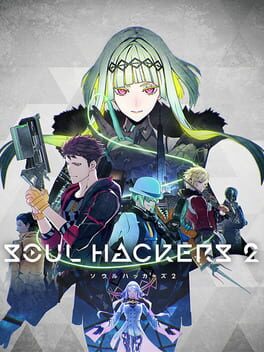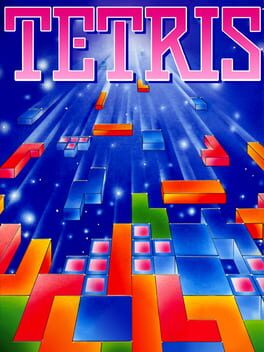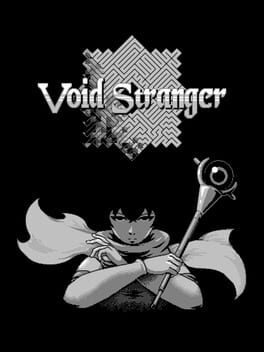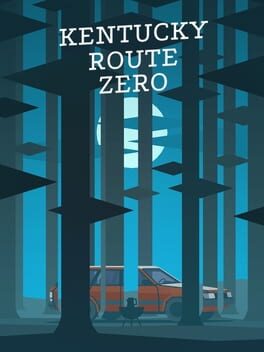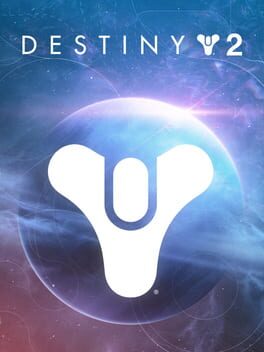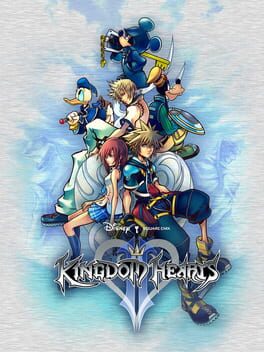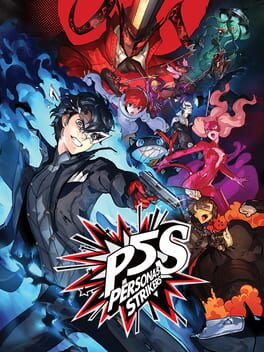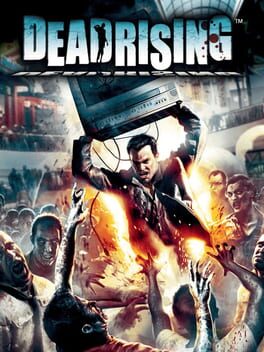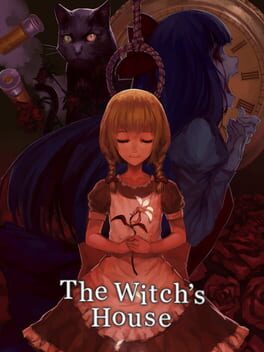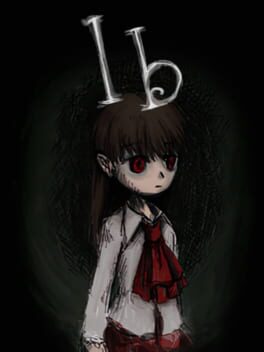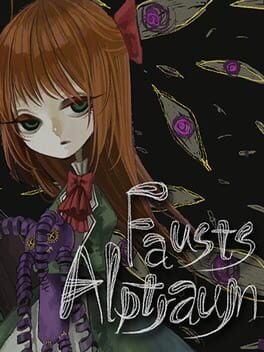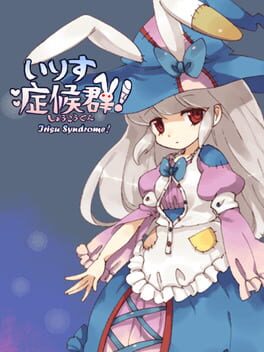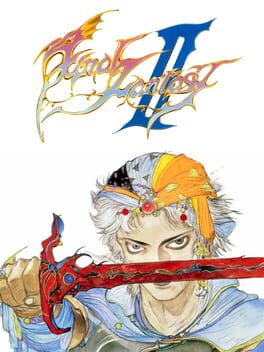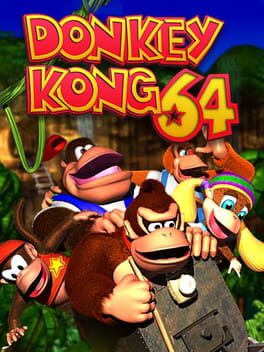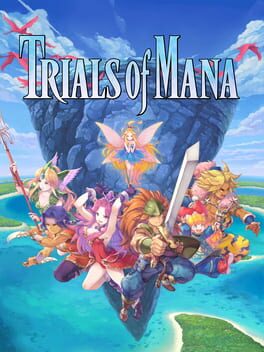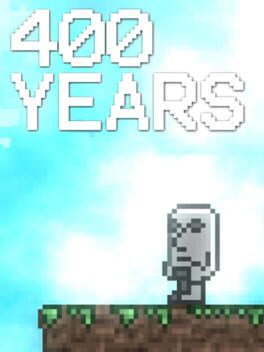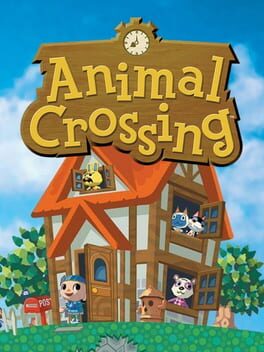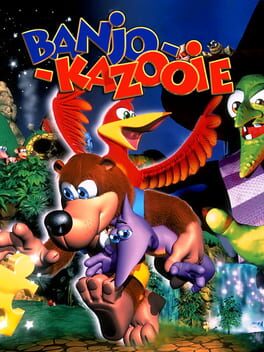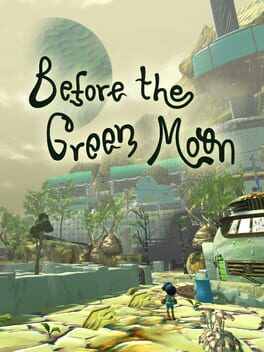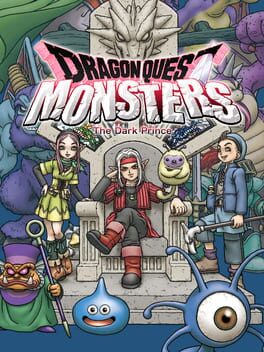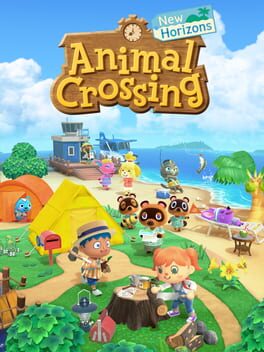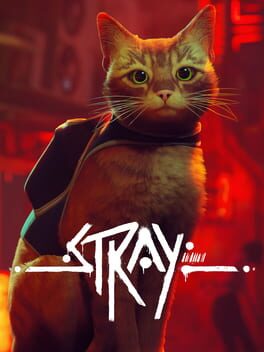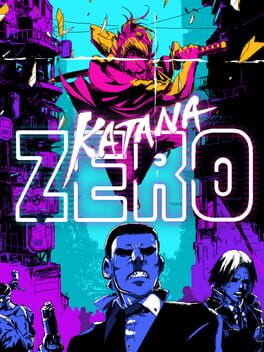DolorousWthVines
BACKER
217 reviews liked by DolorousWthVines
Chrono Cross
1999
initially was going to convey this in a meaner, snarkier way for the bit but with how this game tied into trigger closer to the end i decided not to. the game is not subtle about how it feels having to follow up a dream team project like trigger and a certain set of characters basically have to refrain themselves from explicitly saying serge ruined chrono trigger, and because of that i would honestly feel kind of bad bringing that kind of attitude with this review. regardless, while i played chrono cross, the main thought that went through my head was "how is it that people thought cross didn't live up to trigger rather than the other way around?" but as i finished the game and write this review i feel as though cross didn't need to live up to trigger and that hinging its value on whether or not it does is a very childish way of looking at things.
to me, chrono trigger is a game that is held back by how near perfect it is. there's so little wrong with it that at least to me nothing really stands out anymore. there's nothing to grab onto, no imperfections to make it feel "complete" to me and as such i feel as though its reverence, while not necessarily misplaced, is harder for me to grasp because to me a "perfect" game without imperfections, as contradictory as it sounds, will never be perfect to me. meanwhile, chrono cross i found to be an amazing, thought provoking, mesmerizing game that pushed the playstation to its limits aesthetically, a game with so much to say about what it means to live and exist, what it means to dream. chrono cross is messy and imperfect in such beautiful ways, it knows its following up chrono trigger and while it still intends to be a continuation of a work like trigger it doesn't care what kind of shadow its living in and intends to be its own experience, flaws and all.
whether or not it lives up to chrono trigger is irrelevant, the arguments surrounding such are just attempts at insecure and childish posturing because these games, while connected are so different that its hardly worth comparing in that sense. i understand that nothing exists in a vacuum, let alone a sequel, but maybe it would do some people a lot of good to both understand the context of something like chrono cross while also letting it be its own experience.
to me, chrono trigger is a game that is held back by how near perfect it is. there's so little wrong with it that at least to me nothing really stands out anymore. there's nothing to grab onto, no imperfections to make it feel "complete" to me and as such i feel as though its reverence, while not necessarily misplaced, is harder for me to grasp because to me a "perfect" game without imperfections, as contradictory as it sounds, will never be perfect to me. meanwhile, chrono cross i found to be an amazing, thought provoking, mesmerizing game that pushed the playstation to its limits aesthetically, a game with so much to say about what it means to live and exist, what it means to dream. chrono cross is messy and imperfect in such beautiful ways, it knows its following up chrono trigger and while it still intends to be a continuation of a work like trigger it doesn't care what kind of shadow its living in and intends to be its own experience, flaws and all.
whether or not it lives up to chrono trigger is irrelevant, the arguments surrounding such are just attempts at insecure and childish posturing because these games, while connected are so different that its hardly worth comparing in that sense. i understand that nothing exists in a vacuum, let alone a sequel, but maybe it would do some people a lot of good to both understand the context of something like chrono cross while also letting it be its own experience.
Paper Mario
2000
I've come here
From beyond the bounds of science
I didn't come with a leek
But I wouldn't mind having one
I love virtual singers. My favorite composers and songwriters all use them, and I'd like to say I'm very well versed when it comes to this kind of music. As artistic tools and instruments, it's kind of overwhelming how much potential these voicebanks have. The same song put in two different people's hands can wind up having insanely different reflections, if tuned right. I've heard vocals that sound near identical to a humans, I've also seen them sound so rough and robotic that words are barely legible. Which producers I like, the songs I enjoy, tracks that make me cry, I can talk about those all day if you let me. The history of Vocaloid in general is a very interesting and pervasive one. Does this game do a good job of upholding it?
Kind of. As a game, its incredibly fun. More of a rhythm game than Project Diva, which SEGA has long since chucked into a ditch. I know this style of mobile rhythm game has been done many times in other places, but it works perfectly well. Its all dependant on your ability to follow the beat of a song and tap the notes in tune, unlike in Project Diva where it was more of a battle against the controller (hit x + y + b? What the fuck are you talking about?) since of course, being originally develeoped for an arcade cabinet, it was never going to feel especially good on consoles. This however, being made for mobile, makes the experience leagues better. And the tracklist is insane. Such good picks, a huge range of styles and producers to chose from that doesnt just rely on the classics. Modern Vocaloid producers are insanely talented so I'm more than happy that Sekai keeps up with the current music.
My biggest complaint with this game is how they treat the overall legacy and dignity of the songs they chose, as well as Vocaloid in general. The plot of this game is that of these 5 (human) groups, each supposedly representing a style common in Vocaloid music. Their lives are a wreck but one day their phone flashes and theyre teleported to Miku World, where Miku herself helps these wayward teens through whatever it is they are going through on that particular day. I understand that this game is marketed to young adults, they have to keep Vocaloid relevant, and they also have to sell marketable characters for gacha. But man. I dont give a single shit about any of these people. Some of them are ok, even sweet!- like leo/need is cute. The writing for their stories isnt bad or anything, but the problem arises when they shoehorn these (fake) characters into songs made by real people, with real problems, making it seem like the song is about the characters. Some ditzy idol MitchieM song, ok whatever, but a lot of Vocaloid music tends to be very personal, philosophical even. I feel like its INSANELY disrespectful to overwrite the intentions of the artist to shoehorn in your gacha ocs. Especially with the "depressed" idol group, which they couldnt even be bothered to tackle social issues or anything important besides "my mom makes me do stuff" or "I'm an artist and my brother is annoying" or, confusingly, "my dad is in a Music Coma and its ALL MY FAULT" (relatable, to someone, surely). When a great deal of these songs are about real people's sadness and feelings, I cant help but feel gross seeing Purple Anime Girl #1 cover something like Hated by Life Itself. And they dont just make these people cover these historically important songs, they also create whole new music videos with the Sekai characters pasted over whatever was originally happening? What? How is that right? Even just historically, those original and Project Diva MVs are very important to the culture and rise of the artform. Why paste fucking Mizuki over the video for Hello Worker? She cant even fucking work shes a CHILD. HOW does she relate to the song at all? If you cant properly tackle why a teenager would want to jump off a bridge (as a few producers have wound up ending their lives or passing away otherwise) maybe dont make your bimbo gacha teehee heehaw teen sing a whole song about it. Even regular tracks, if you're already making music FOR the game anyways just keep them out of it.
It makes me a little sad seeing as how this is a lot of children's/young adult's first impression of virtual singers, since I've already heard tales of people playing this game and not knowing what Vocaloid is, somehow. The relevance of Vocaloid, CeViOs, UTAUs, you name it- has been going strong since it's inception two decades ago. All thanks to the very talented and beautiful people who continue to make music utilizing them, and disregarding Sekai, that is not going to change for a long while. If this stupid little app won't celebrate Miku like she DESERVES, well then... I guess its up to me. I fucking love you girl, keep on bein your twin-tailed self. No one can take your spotlight.
I understand that you still can't see what I look like
But I'm alive.
I talk with you.
So across the wall of virtual reality
Inside the flood of information,
I want to go on evolving,
you and I together.
From beyond the bounds of science
I didn't come with a leek
But I wouldn't mind having one
I love virtual singers. My favorite composers and songwriters all use them, and I'd like to say I'm very well versed when it comes to this kind of music. As artistic tools and instruments, it's kind of overwhelming how much potential these voicebanks have. The same song put in two different people's hands can wind up having insanely different reflections, if tuned right. I've heard vocals that sound near identical to a humans, I've also seen them sound so rough and robotic that words are barely legible. Which producers I like, the songs I enjoy, tracks that make me cry, I can talk about those all day if you let me. The history of Vocaloid in general is a very interesting and pervasive one. Does this game do a good job of upholding it?
Kind of. As a game, its incredibly fun. More of a rhythm game than Project Diva, which SEGA has long since chucked into a ditch. I know this style of mobile rhythm game has been done many times in other places, but it works perfectly well. Its all dependant on your ability to follow the beat of a song and tap the notes in tune, unlike in Project Diva where it was more of a battle against the controller (hit x + y + b? What the fuck are you talking about?) since of course, being originally develeoped for an arcade cabinet, it was never going to feel especially good on consoles. This however, being made for mobile, makes the experience leagues better. And the tracklist is insane. Such good picks, a huge range of styles and producers to chose from that doesnt just rely on the classics. Modern Vocaloid producers are insanely talented so I'm more than happy that Sekai keeps up with the current music.
My biggest complaint with this game is how they treat the overall legacy and dignity of the songs they chose, as well as Vocaloid in general. The plot of this game is that of these 5 (human) groups, each supposedly representing a style common in Vocaloid music. Their lives are a wreck but one day their phone flashes and theyre teleported to Miku World, where Miku herself helps these wayward teens through whatever it is they are going through on that particular day. I understand that this game is marketed to young adults, they have to keep Vocaloid relevant, and they also have to sell marketable characters for gacha. But man. I dont give a single shit about any of these people. Some of them are ok, even sweet!- like leo/need is cute. The writing for their stories isnt bad or anything, but the problem arises when they shoehorn these (fake) characters into songs made by real people, with real problems, making it seem like the song is about the characters. Some ditzy idol MitchieM song, ok whatever, but a lot of Vocaloid music tends to be very personal, philosophical even. I feel like its INSANELY disrespectful to overwrite the intentions of the artist to shoehorn in your gacha ocs. Especially with the "depressed" idol group, which they couldnt even be bothered to tackle social issues or anything important besides "my mom makes me do stuff" or "I'm an artist and my brother is annoying" or, confusingly, "my dad is in a Music Coma and its ALL MY FAULT" (relatable, to someone, surely). When a great deal of these songs are about real people's sadness and feelings, I cant help but feel gross seeing Purple Anime Girl #1 cover something like Hated by Life Itself. And they dont just make these people cover these historically important songs, they also create whole new music videos with the Sekai characters pasted over whatever was originally happening? What? How is that right? Even just historically, those original and Project Diva MVs are very important to the culture and rise of the artform. Why paste fucking Mizuki over the video for Hello Worker? She cant even fucking work shes a CHILD. HOW does she relate to the song at all? If you cant properly tackle why a teenager would want to jump off a bridge (as a few producers have wound up ending their lives or passing away otherwise) maybe dont make your bimbo gacha teehee heehaw teen sing a whole song about it. Even regular tracks, if you're already making music FOR the game anyways just keep them out of it.
It makes me a little sad seeing as how this is a lot of children's/young adult's first impression of virtual singers, since I've already heard tales of people playing this game and not knowing what Vocaloid is, somehow. The relevance of Vocaloid, CeViOs, UTAUs, you name it- has been going strong since it's inception two decades ago. All thanks to the very talented and beautiful people who continue to make music utilizing them, and disregarding Sekai, that is not going to change for a long while. If this stupid little app won't celebrate Miku like she DESERVES, well then... I guess its up to me. I fucking love you girl, keep on bein your twin-tailed self. No one can take your spotlight.
I understand that you still can't see what I look like
But I'm alive.
I talk with you.
So across the wall of virtual reality
Inside the flood of information,
I want to go on evolving,
you and I together.
The art in this game is beautiful, and the concept is very sweet, though as much as I would want to love a Touhou rpgmaker game the translation is kind of patchy and they made me do complex math. The puzzles alternate between being easy to frustrating, either way they're all very simple in concept and it isnt anything that excites me, or really relates to Touhou at all for that matter. I dont think any game ever should make you pay 8 dollars just to humiliate yourself doing division.
Romancing SaGa 2
1993
maybe not the strongest game ever writing or story wise but conceptually and in execution for a jrpg from 1993 romancing saga 2 is incredibly interesting and a game i'll probably be thinking about for a long time. the only version available in english being an inferior remaster definitely doesn't do it any favors for a wider audience, but it's still something worth checking out if you care at all about the genre. my only hope from something like team asano or just the influx of more classic-inspired jrpgs in general is that we go back to an era where we get experimental titles like this again
This is what they were crunching for?
The Callisto Protocol is a man drowning. He’s been swept out by the tides deeper than he can swim, and now I feel compelled to go and be the one who drags him back to shore. I’m not looking forward to it as I swim out there. This always ends badly. I know he’ll kick, and flail, and panic, and drag me under with him. But something compels me. I dip beneath the waves, gliding on the current. Every kick is met only with more water, never ground; it’s been a while since either of us has been able to touch bottom. I get to the man. All of the dread that I felt swimming up to him — the growing pit in my stomach warning me that he’d kill us both — fades as I get a hold of him. He’s calm. He doesn’t fight. He wants to be rescued, and he's coherent enough to tell me as much. So much worry on my end, and for nothing. We’re both going home, and my doubts were unfounded. The two of us make our way back to the shallows, and my heart swells. Nobody’s gonna believe this. I get to be the one who brings back the guy that everyone thought couldn't be saved.
We make it from the depths to a point where the ocean reaches our shins, at which point the man panics and submerges my head in about two feet of water until we both die. I knew I should have let the fucker drown.
What we’re looking at here is a bad start that leads into a remarkably strong middle, hitting an impressive stride just in time to trip and break both legs three hours before the finish line. But that middle section is good. It’s really good. It’s so good that I was ready to come in here and lord a massively inflated score over the heads of all of the doubters who didn’t get it. Reality hits hard when it hits, though, and there’s no denying that The Callisto Protocol just runs out at the end. It runs out of ideas, it runs out of money, it runs out of employee morale — it runs dry and it runs empty until the engine shears itself in half.
This is pretty, but a game "being pretty" hasn't impressed me for fifteen years now. Everything since the early-mid 2010s has given me this shrug-your-shoulders feeling of "yeah, I guess it looks good" and spurred little in me beyond that. I know it's a tired truism to trot out — "art direction is more important that graphical fidelity!", as if we don't all know that already — but even games from that era that were trying to look as realistic as the latest titles don't read as being all that different to me today. Honestly, I think the face-scan mocap shit that's everywhere in AAA games these days looks kind of bad; they're all sitting deep in that uncanny valley where everyone's head looks like it's got a video of the actor's face wrapped around it. Even with (perhaps due to an overreliance upon) all of the tech in place, some of these animations look incredibly bad. Here's a shot of Josh Duhamel's character screaming in agony as he gets an implant stuffed in his neck that hurts so bad that he has a heart attack and dies. It's silly. This is not an expression of pain. He's making a YouTube thumbnail face. Fuck, the source of that image is a YouTube thumbnail.
So, yes, this is all very technically impressive, but in practice it's all just bloom and haze and fog and I can't fucking see any of it because someone turned all the lights off. None of this sparks joy. Everything is gray and bland and devoid of life. There's nothing that even remotely scratches at iconic Dead Space setpieces like the Church of Unitology or the cryopod rooms, because the art direction on display is kind of shit. It's a just-so approximation of enough of Dead Space's elements to provoke familiarity, but it's off in a way that betrays the fact that Visceral was a team made up of a lot more people than just Glen Schofield. He isn't Visceral, and this isn't a spiritual successor to Dead Space. It's a spiritual regression.
But as desperately as this wants to stay latched to the teat of Dead Space, it isn't open to those who want the game to be Dead Space. This is a melee-focused system based around dodging, combos, and environment kills; Dead Space is a shooter based around positioning, dismemberment, and, uh, also environment kills. You've gotta meet The Callisto Protocol on its own terms; playing it like Dead Space is a losing position. You should be doing this for everything you consume, by the way. Don't try and cram a work you don't like into a box that doesn't fit it. Play the game that they designed, not the one you wish they'd designed. It took a little readjusting over the course of the entire opening hour of The Callisto Protocol, but I eventually came to understand what it was going for, how it wanted to be played. And I liked it.
Actually, I really liked it.
Combat is simple, but raw enough to be really satisfying once you get the loops figured out. Each fight will take place either as a gauntlet of enemies that pour out one after the other, or as group battles where you'll be caught between three or four monsters at a time. It's a game of dodging, waiting out the combos, finding an opportunity to strike, and then going all-out until you're forced to stop. Weave around a three-hit combo, dole out one of your own that takes the arm off of a monster, get whipped around by another, block his strike, take his legs out, get shoved, pop one with the new space you've been given; it's a wonderful little system that isn't hard to come to grips with, but is punishing enough to mean that eating a bad hit or two will send you back to your last checkpoint. The added complexity comes in the form of your GRP (pronounced as "grip") and your guns, though you'll be rocking with the starting magnum for the vast majority of the game. The GRP can pick up enemies and hazards to toss them around, and your guns are your combo enders. You can also open with gunfire if you've got some distance on the monsters; they've gotta come to you, so you can filter a group down a chokepoint and take one of them out before you're forced to rely on the melee to take you the rest of the way. Combo-ender gunshots can sever limbs, decapitate enemies, force staggers to open up rushdown opportunities, and generally just act as a major force-multiplier to make sure a crowd of monsters is never unmanageable. If you're thinking that this sounds like it's not really a system primed for a horror game, you'd be right. The Callisto Protocol sucks dick at being a horror game. As an action game, though — much like big brother Dead Space — I thought it was great.
Eventually, you'll progress to a point in the narrative where hitting the monsters for long enough will make worms rupture from their body. These worms need to be shot within a fairly tight window of time, or else they'll cause the monster in question to undergo a transformation that makes them bigger, stronger, and faster. You really do not want to let the worms make the monsters evolve. In theory, this is an interesting escalation — you can't afford to drag fights out the way that you could earlier — but as we've seen throughout this write-up, theory is distinct from practice.
In practice, the worms will always erupt from the same place; the generic guys who smack you around will have them erupt from their guts, and the spitters will have them erupt from their heads. These are the primary enemy types that you'll be fighting against for the overwhelming majority of your playthrough, so combat encounters go from frenetic punch-ups where you're desperately trying to make the right call to something that's solved by a flowchart: three or four hits always followed by a gut shot or a head shot, rinse and repeat. There's basically no reason to ever open up by firing your gun now that enemies can heal by evolving, which leaves you the options to fling the enemies with your gravity glove and hurt them a little bit, or to swing at them with the baton. The baton expends no resources, is fast, is always guaranteed to connect, is a safe option, and will open up enemies for the instakill gut/head shot in no time at all. So many tools, and no reason to use any of them besides the fucking stick. Everything was useful only two hours prior, so being boxed in to what's obviously an optimal strategy to repeat on every single monster serves only to squander a system that was working just fine before.
Where things really fall apart, however, is in the third act. Jacob, our protagonist, falls down a gutter or some shit into an underground area where all of the enemies are blind. They've got super-hearing, but they can't see. Firing a shot or swinging at one with your baton may as well spare you the ceremony of kicking off a fight and just reload your checkpoint the second you press the button; you'll get swarmed by too many monsters to deal with, and they'll chew through every resource you have before they kill you. What you have to do instead is pull a page from Joel Thelastofus's book and crouch-walk around while shivving these clicker expys to death. Unlike in The Last of Us, however, the shiv that you get has infinite uses, meaning that you can very easily just crouch-walk around and kill everything without alerting a single enemy. This is optimal. They don't hear you shivving them, even as Jacob grunts and growls and the monsters gurgle and shriek, and there's no reason to sneak past them; they still drop ammo and money and health packs just the same as everything else. If you could just blast your way through this section, it'd be over in thirty minutes; instead, you have to play the most boring stealth section ever devised by human hands and it takes upwards of two and a half hours.
You get back to the regular action combat in time for the game to end, but the damage is more than done at that point. You fight the exact same boss four times in the span of an hour, and his pattern is literally just doing right-hand swings. You hold left on the control stick and auto-dodge everything while shooting him once per dodge. It's so boring. I knew while I was going through the ridiculously long stealth segment that they were padding for time, but repeating the same boss fight four fucking times really gives it away to anyone who wasn't paying attention that they were running on empty. I went from itching for more in the middle act to wishing it would just hurry up and end by the start of the finale.
Jacob gets to the escape pods, meets a zombie warden who's managed to keep his personality (generic asshole), and then the zombie warden does the Resident Evil boss thing where he talks about having superior genetics and then turns into a big meat monster with glowing orange eyeball weakpoints. I'll take the opportunity now to point out that this game was written by two people. The lead writer has never worked on anything else in his entire life. There were five times as many employees dedicated to the face scanning as there were on the writing team. Remember that the facescanning looks like shit, so adjust your expectations for the quality of the writing accordingly. Whatever. Nobody was ever playing this for the story. It's still a weird choice for a game like this, though; with everything being told to you through audio logs and exposition from characters who have a clue what's going on, you'd think you'd want more hands on deck. Then again, the only thing anyone ever seems to say is "Jacob, go to [the place], I'll explain later", so you probably don't need to put too much effort into putting that together.
But my mind keeps wandering back to the thought that the people at Striking Distance were working twelve hour days, seven days a week — and for what? What about The Callisto Protocol demanded such brutal hours for such a long stretch of development? I can't find anything in the time leading up to the game's release that would indicate what was sucking up so many resources; all I've come up with are some vague gestures towards "new lighting techniques" and "haptic feedback", all incidentals that barely add much of anything to a work that's remarkably standard. This cost $160 million to Dead Space 2's 60 million and it looks and plays worse.
There’s an excellent game within The Callisto Protocol, and one that I imagine would have been able to flourish if made under the banner of someone who actually had a clue. Literally all it takes to turn this from mediocre to great is a better manager. Talented people were overworked and underpaid to make something that broadly isn’t good, but shines in parts; had they been treated properly and overseen by a real leader instead of an MBA meathead who stepped down the second shit got hot, they would have made something that could actually eat Dead Space’s lunch. Instead, we got this, and it’s begging for Dead Space’s scraps.
Glen Schofield can go fuck himself.
The Callisto Protocol is a man drowning. He’s been swept out by the tides deeper than he can swim, and now I feel compelled to go and be the one who drags him back to shore. I’m not looking forward to it as I swim out there. This always ends badly. I know he’ll kick, and flail, and panic, and drag me under with him. But something compels me. I dip beneath the waves, gliding on the current. Every kick is met only with more water, never ground; it’s been a while since either of us has been able to touch bottom. I get to the man. All of the dread that I felt swimming up to him — the growing pit in my stomach warning me that he’d kill us both — fades as I get a hold of him. He’s calm. He doesn’t fight. He wants to be rescued, and he's coherent enough to tell me as much. So much worry on my end, and for nothing. We’re both going home, and my doubts were unfounded. The two of us make our way back to the shallows, and my heart swells. Nobody’s gonna believe this. I get to be the one who brings back the guy that everyone thought couldn't be saved.
We make it from the depths to a point where the ocean reaches our shins, at which point the man panics and submerges my head in about two feet of water until we both die. I knew I should have let the fucker drown.
What we’re looking at here is a bad start that leads into a remarkably strong middle, hitting an impressive stride just in time to trip and break both legs three hours before the finish line. But that middle section is good. It’s really good. It’s so good that I was ready to come in here and lord a massively inflated score over the heads of all of the doubters who didn’t get it. Reality hits hard when it hits, though, and there’s no denying that The Callisto Protocol just runs out at the end. It runs out of ideas, it runs out of money, it runs out of employee morale — it runs dry and it runs empty until the engine shears itself in half.
This is pretty, but a game "being pretty" hasn't impressed me for fifteen years now. Everything since the early-mid 2010s has given me this shrug-your-shoulders feeling of "yeah, I guess it looks good" and spurred little in me beyond that. I know it's a tired truism to trot out — "art direction is more important that graphical fidelity!", as if we don't all know that already — but even games from that era that were trying to look as realistic as the latest titles don't read as being all that different to me today. Honestly, I think the face-scan mocap shit that's everywhere in AAA games these days looks kind of bad; they're all sitting deep in that uncanny valley where everyone's head looks like it's got a video of the actor's face wrapped around it. Even with (perhaps due to an overreliance upon) all of the tech in place, some of these animations look incredibly bad. Here's a shot of Josh Duhamel's character screaming in agony as he gets an implant stuffed in his neck that hurts so bad that he has a heart attack and dies. It's silly. This is not an expression of pain. He's making a YouTube thumbnail face. Fuck, the source of that image is a YouTube thumbnail.
So, yes, this is all very technically impressive, but in practice it's all just bloom and haze and fog and I can't fucking see any of it because someone turned all the lights off. None of this sparks joy. Everything is gray and bland and devoid of life. There's nothing that even remotely scratches at iconic Dead Space setpieces like the Church of Unitology or the cryopod rooms, because the art direction on display is kind of shit. It's a just-so approximation of enough of Dead Space's elements to provoke familiarity, but it's off in a way that betrays the fact that Visceral was a team made up of a lot more people than just Glen Schofield. He isn't Visceral, and this isn't a spiritual successor to Dead Space. It's a spiritual regression.
But as desperately as this wants to stay latched to the teat of Dead Space, it isn't open to those who want the game to be Dead Space. This is a melee-focused system based around dodging, combos, and environment kills; Dead Space is a shooter based around positioning, dismemberment, and, uh, also environment kills. You've gotta meet The Callisto Protocol on its own terms; playing it like Dead Space is a losing position. You should be doing this for everything you consume, by the way. Don't try and cram a work you don't like into a box that doesn't fit it. Play the game that they designed, not the one you wish they'd designed. It took a little readjusting over the course of the entire opening hour of The Callisto Protocol, but I eventually came to understand what it was going for, how it wanted to be played. And I liked it.
Actually, I really liked it.
Combat is simple, but raw enough to be really satisfying once you get the loops figured out. Each fight will take place either as a gauntlet of enemies that pour out one after the other, or as group battles where you'll be caught between three or four monsters at a time. It's a game of dodging, waiting out the combos, finding an opportunity to strike, and then going all-out until you're forced to stop. Weave around a three-hit combo, dole out one of your own that takes the arm off of a monster, get whipped around by another, block his strike, take his legs out, get shoved, pop one with the new space you've been given; it's a wonderful little system that isn't hard to come to grips with, but is punishing enough to mean that eating a bad hit or two will send you back to your last checkpoint. The added complexity comes in the form of your GRP (pronounced as "grip") and your guns, though you'll be rocking with the starting magnum for the vast majority of the game. The GRP can pick up enemies and hazards to toss them around, and your guns are your combo enders. You can also open with gunfire if you've got some distance on the monsters; they've gotta come to you, so you can filter a group down a chokepoint and take one of them out before you're forced to rely on the melee to take you the rest of the way. Combo-ender gunshots can sever limbs, decapitate enemies, force staggers to open up rushdown opportunities, and generally just act as a major force-multiplier to make sure a crowd of monsters is never unmanageable. If you're thinking that this sounds like it's not really a system primed for a horror game, you'd be right. The Callisto Protocol sucks dick at being a horror game. As an action game, though — much like big brother Dead Space — I thought it was great.
Eventually, you'll progress to a point in the narrative where hitting the monsters for long enough will make worms rupture from their body. These worms need to be shot within a fairly tight window of time, or else they'll cause the monster in question to undergo a transformation that makes them bigger, stronger, and faster. You really do not want to let the worms make the monsters evolve. In theory, this is an interesting escalation — you can't afford to drag fights out the way that you could earlier — but as we've seen throughout this write-up, theory is distinct from practice.
In practice, the worms will always erupt from the same place; the generic guys who smack you around will have them erupt from their guts, and the spitters will have them erupt from their heads. These are the primary enemy types that you'll be fighting against for the overwhelming majority of your playthrough, so combat encounters go from frenetic punch-ups where you're desperately trying to make the right call to something that's solved by a flowchart: three or four hits always followed by a gut shot or a head shot, rinse and repeat. There's basically no reason to ever open up by firing your gun now that enemies can heal by evolving, which leaves you the options to fling the enemies with your gravity glove and hurt them a little bit, or to swing at them with the baton. The baton expends no resources, is fast, is always guaranteed to connect, is a safe option, and will open up enemies for the instakill gut/head shot in no time at all. So many tools, and no reason to use any of them besides the fucking stick. Everything was useful only two hours prior, so being boxed in to what's obviously an optimal strategy to repeat on every single monster serves only to squander a system that was working just fine before.
Where things really fall apart, however, is in the third act. Jacob, our protagonist, falls down a gutter or some shit into an underground area where all of the enemies are blind. They've got super-hearing, but they can't see. Firing a shot or swinging at one with your baton may as well spare you the ceremony of kicking off a fight and just reload your checkpoint the second you press the button; you'll get swarmed by too many monsters to deal with, and they'll chew through every resource you have before they kill you. What you have to do instead is pull a page from Joel Thelastofus's book and crouch-walk around while shivving these clicker expys to death. Unlike in The Last of Us, however, the shiv that you get has infinite uses, meaning that you can very easily just crouch-walk around and kill everything without alerting a single enemy. This is optimal. They don't hear you shivving them, even as Jacob grunts and growls and the monsters gurgle and shriek, and there's no reason to sneak past them; they still drop ammo and money and health packs just the same as everything else. If you could just blast your way through this section, it'd be over in thirty minutes; instead, you have to play the most boring stealth section ever devised by human hands and it takes upwards of two and a half hours.
You get back to the regular action combat in time for the game to end, but the damage is more than done at that point. You fight the exact same boss four times in the span of an hour, and his pattern is literally just doing right-hand swings. You hold left on the control stick and auto-dodge everything while shooting him once per dodge. It's so boring. I knew while I was going through the ridiculously long stealth segment that they were padding for time, but repeating the same boss fight four fucking times really gives it away to anyone who wasn't paying attention that they were running on empty. I went from itching for more in the middle act to wishing it would just hurry up and end by the start of the finale.
Jacob gets to the escape pods, meets a zombie warden who's managed to keep his personality (generic asshole), and then the zombie warden does the Resident Evil boss thing where he talks about having superior genetics and then turns into a big meat monster with glowing orange eyeball weakpoints. I'll take the opportunity now to point out that this game was written by two people. The lead writer has never worked on anything else in his entire life. There were five times as many employees dedicated to the face scanning as there were on the writing team. Remember that the facescanning looks like shit, so adjust your expectations for the quality of the writing accordingly. Whatever. Nobody was ever playing this for the story. It's still a weird choice for a game like this, though; with everything being told to you through audio logs and exposition from characters who have a clue what's going on, you'd think you'd want more hands on deck. Then again, the only thing anyone ever seems to say is "Jacob, go to [the place], I'll explain later", so you probably don't need to put too much effort into putting that together.
But my mind keeps wandering back to the thought that the people at Striking Distance were working twelve hour days, seven days a week — and for what? What about The Callisto Protocol demanded such brutal hours for such a long stretch of development? I can't find anything in the time leading up to the game's release that would indicate what was sucking up so many resources; all I've come up with are some vague gestures towards "new lighting techniques" and "haptic feedback", all incidentals that barely add much of anything to a work that's remarkably standard. This cost $160 million to Dead Space 2's 60 million and it looks and plays worse.
There’s an excellent game within The Callisto Protocol, and one that I imagine would have been able to flourish if made under the banner of someone who actually had a clue. Literally all it takes to turn this from mediocre to great is a better manager. Talented people were overworked and underpaid to make something that broadly isn’t good, but shines in parts; had they been treated properly and overseen by a real leader instead of an MBA meathead who stepped down the second shit got hot, they would have made something that could actually eat Dead Space’s lunch. Instead, we got this, and it’s begging for Dead Space’s scraps.
Glen Schofield can go fuck himself.
I love this dev. They come up with such smart and high concept ideas, and though this didnt hit in the way 7 Days did for me, I still enjoyed the time I spent with it. Normally, personality tests as a concept are something I don't particularly subscribe to (especially as a gameplay format), but in the case of Refind Self it works incredibly well. Playing as an android, simultaneously teaching her humanity while also exercising your own freedom of choice is a very endearing route of storytelling. The grief and kindness expressed through the options you chose, the limited amount of time you have to play reflecting the wind-up android's existence... as seems to always be the case, this dev is very careful and smart in the way they go about presenting their world. I love their artstyle, love the philosophy behind it. The only thing I could say these games lack is music, as each only has a few tracks (few meaning 2 or 3) that don't loop especially well. Highly suggest this dev's catalog for anyone looking for a unique and short, lovingly crafted experience. Really excited to see what they put out next ☆
Tetris DS
2006
When I first gave this version a go I found it a bit underwhelming and I’m over that now, but then am also underwhelmed in different areas. The standard Tetris game feels sooo good here. Maybe the best feeling Tetris I’ve ever played, and if I’m ever getting a twitch for it I’ll definitely be coming back to this one. The thing is the other mini-games aren’t really my jam. The ‘puzzle’ game is interesting, but fuck if I’m gonna do a billion of those, lol. ‘Catch’ is really promising, but I don’t really get it. I just never cracked the nut and figured out what could be really interesting about it. I really, really liked the ‘touch’ game’s concept but it plays so poorly. Rotating and sliding pieces never feels right on the first try, it’s like actually try to move human-sized Tetris pieces. So, like, Tetris is so perfect, and it feels so good here, and I think this is just jam-packed with some extras that range from “alright” to “good,” so, what can ya say? That’s a pretty good Tetris right there, I guess.
The Bouncer
2000
Disney Infinity
2013
Review based on PC version, that does not contain any online servers or split screen.
Disney Infinity 1.0 is something I'm sure I would have appreciated much more if I played this while younger. Essentially it is a game engine where you can create Sandbox levels with some Disney themes. From what I've played, everything kinda seems barebones. At it's strongest, you can get a cool platforming level out of it. At it's weakest you'll get a semi-empty open world sandbox with collect X item missions or beat X enemies. The singleplayer is pretty much basic missions teaching you the necessities to see how the engine works.
But what really hurts this game is the fact that there is no online to share and play other levels. The ability to make your own "Toy Box" is there, but the fact that you can't share it or at least play some split screen really makes it pointless.
It's a good idea, and I'm sure the later versions get much better, but without continued support, there really is no point to playing this.
Disney Infinity 1.0 is something I'm sure I would have appreciated much more if I played this while younger. Essentially it is a game engine where you can create Sandbox levels with some Disney themes. From what I've played, everything kinda seems barebones. At it's strongest, you can get a cool platforming level out of it. At it's weakest you'll get a semi-empty open world sandbox with collect X item missions or beat X enemies. The singleplayer is pretty much basic missions teaching you the necessities to see how the engine works.
But what really hurts this game is the fact that there is no online to share and play other levels. The ability to make your own "Toy Box" is there, but the fact that you can't share it or at least play some split screen really makes it pointless.
It's a good idea, and I'm sure the later versions get much better, but without continued support, there really is no point to playing this.
43 lists liked by DolorousWthVines
by fntm |
45 Games
by Grassdragon |
2 Games
by Archagent |
2 Games
by Nerdietalk |
6 Games
by flaco |
15 Games
by moschidae |
21 Games
by seymourflux |
18 Games
by wraena |
42 Games
